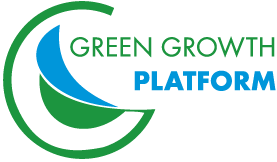Project Overview
The global food system faces significant challenges in meeting nutritional needs while minimizing environmental impact. Alternative Proteins (APros) from plant-based sources, insects, and cultured meat offer a sustainable solution by reducing resource usage and GHG emissions. While Widening Countries (WCs) face challenges in advancing their APros sectors, such as limited research infrastructure, high production costs, and evolving regulatory frameworks, they also hold significant untapped potential. Many WCs, including Türkiye, Greece, Poland, Malta and North Macedonia, have rich biodiversity and unique plant species, which can serve as valuable sources for developing novel plant-based proteins. This diversity, coupled with favorable agricultural conditions, provides an opportunity for these countries to become leaders in the APro market. However, these resources remain underutilized, as the lack of investment and market development has hindered the sector’s growth. APRISE consists of 5 WCs: Türkiye, Poland, Greece, Malta and North Macedonia. Through targeted Research, Innovation, and Collaboration talents, APRISE seeks to unlock the hidden potential of WCs, opening the way for more robust contributions to global food security and sustainability efforts. With the right support, WCs have the potential to become key players in the growing APros industry, utilizing their natural resources to drive innovation and market expansion. The APRISE project is designed to address these challenges by enhancing the research capacity of R&I talents in WCs, promoting cross sectoral collaboration, sustainable practices, and improving the employability of researchers in the APros sector. Through structured training programs, secondments, and partnerships between academic institutions and industry stakeholders, APRISE aims to empower a new generation of researchers capable of advancing the APros sector. The project aligns with Horizon Europe’s goals of building a more inclusive and sustainable ERA, with a focus on addressing regional disparities and promoting innovation in emerging food technologies.
Specific objectives
SO1: Enhance research skills and capacity on APros in WCs. Outcome: Talents equipped with advanced research methodologies, innovative processing techniques, data analysis, APros production and characterization, and consumer science; Increased scientific and innovation capacity for all participants.
SO2: Enhance professional skills and career development. Outcome: Acquisition of transferable skill (Entrepreneurship, Project management, AI and digital literacy, Open science practices); Stronger capacity to navigate both academic and non-academic career paths; Increased competitiveness in the global job market.
SO3: Facilitate intersectoral and geographical mobility. Outcome: Broadened professional networks for talents; increased cross-sectoral collaboration; over 200 secondments; significant involvement of talents in mobilities; enhanced geographical mobility; diverse experiences and perspectives, promoting innovation and career development.
SO4: Develop talent’s skill in policy advocacy, stakeholder engagement, and knowledge integration. Outcome: Strengthened ability to influence policy development; effective stakeholder engagement across sectors, active participation in stakeholder forums, improved integration of scientific knowledge into policy-making, more informed and supportive environment for APros.
SO5: Promote sustainable practices in APros. Outcome: Implementation of sustainable practices across APros’ value chain; training in life cycle analysis (LCA), circular economy, sustainable food production methods; proficiency in integrating sustainability, environmentally responsible innovations in the APros sector.
SO6: Ensure effective dissemination and exploitation of project results. Outcome: Broad dissemination, effective exploitation of project outcomes, scientific publications, policy briefs, wide communication to academic and nonacademic audiences, societal and economic impact, focus on WCs.
GGP role in the project
APRISE promotes geographical mobility through secondments, facilitating exposure to diverse regulatory environments and market conditions. GGP as non-academic institution in the Consortium will host research talents and administrative staff, and will also provide outgoing secondments. GGP as an NGO will ensure that talents gain practical industry experience. GGP plays a crucial role in facilitating interactions with policymakers and industry representatives, helping talents shape APros policies and integrate cross-sectoral knowledge. GGP will provide real-world examples and case studies, ensuring that talents are equipped to apply sustainable practices in their fields.
GGP will be involved in Trainings sessions on Sustainable Practices in APros. These sessions, emphasizing environmental sustainability, will cover circular economy practices, environmental assessments, and sustainable sourcing, aligning with the project’s sustainability commitment.
GGP will organize a comprehensive workshop designed to explore critical aspects of sustainability in the agri-food sector through digital transformation and innovative practices. This conference-style workshop will offer a deeper dive into advanced, application-oriented topics. It will provide participants with a unique opportunity to enhance their skills beyond theoretical concepts by engaging with real-world scenarios and interdisciplinary approaches including lectures related to the strategies driving consumer behavior and acceptance of APro products, the usage of digital technologies to improve sustainability in food production, practical insights into innovative product development and sustainable food design, and exploring novel approaches to APro extraction.
GGP will organize a Discussion Forum (DFs) to collaborate with the APro sector, bringing together stakeholders to discuss the APro sector’s present and future. For the talents, these forums will provide real world insights, broaden their understanding, and develop key skills like critical thinking and stakeholder engagement.
Consortium Partners (WC=Widening Country)
- Coordinator METU-Middle East Technical University Academic TR (WC)
- MyB-MyBiotech GmbH Non-Academic DE
- NBio-Nutri Biotech Services Ltd. Non-Academic MT (WC)
- EVs-EcoVibes – Environmental Consultants Non-Academic GR (WC)
- NHI-Nordic Horizon Institute Non-Academic SE
- OPC-OpenCom Italy Non-Academic IT
- WULS-Warsaw University of Life Sciences Academic PL (WC)
- AUA-Agricultural University of Athens Academic GR (WC)
- ACRE-Advanced Climate Risk Education Non-Academic DE
- NTU-Notthingham Trent University Academic UK
- Tw-Telewander ApS Non-Academic DK
- IRTA-Institute of Agrifood Research and Tech. Academic ES
- BKEA– BioKimika Extrakta Analytika Ltd. Non-Academic MT (WC)
- BTK-BITKIDEN Plants Food Association Non-Academic TR (WC)
- GGP-Green Growth Platform Non-Academic MK (WC)
- Theta-Theta Biomarkers Non-Academic GR (WC)
- TTGV-Technology Development Foundation Non-Academic TR (WC)
- SUTAS-SÜTAŞ A. Ş Non-Academic TR (WC)
Project coordinator: METU-Middle East Technical University, Türkiye
Project starting date: 1 September 2025
Project end date: 31 August 2029
Project duration: 48 months
Funding: Horizon Europe Programme for research and innovation (HORIZON-WIDERA-2024-TALENTS-03)
APRISE social media: https://www.linkedin.com/company/apriseproject/posts/?feedView=all
